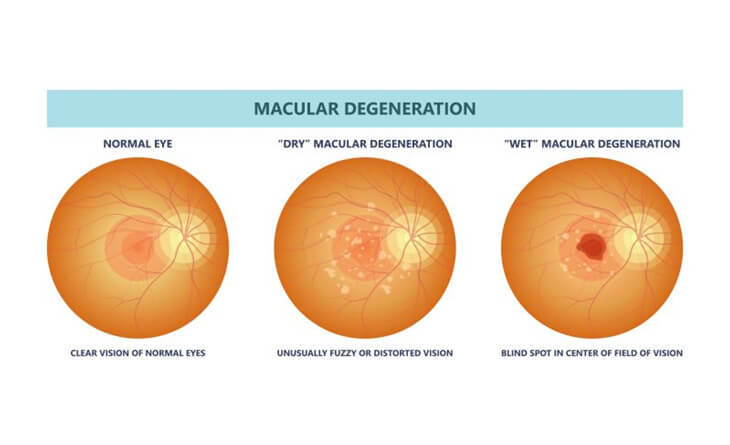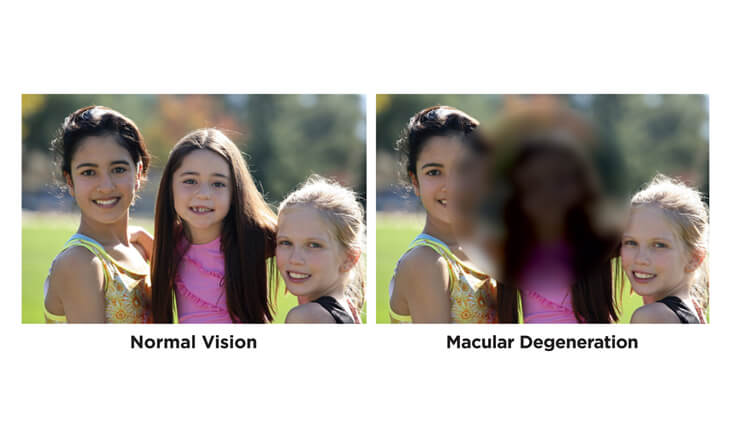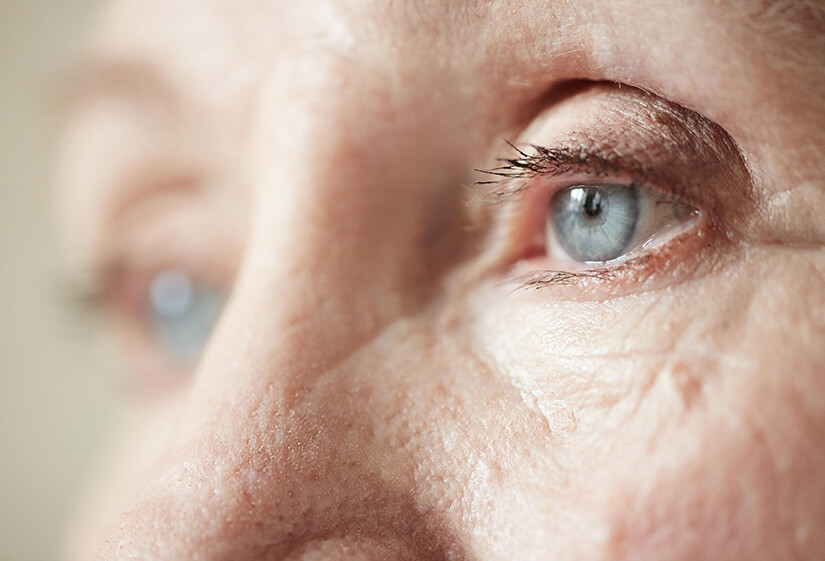Macular Degeneration Eye Disease Treatment – A Complete Guide
Is Macular Degeneration Taking Away Your Vision?
Imagine struggling to see the fine details in your favourite book or the expressions on a loved one’s face. This is the reality for many individuals experiencing macular degeneration. It’s more than just blurry vision – it’s a significant change in how you see and interact with the world. Macular degeneration treatment has come a long way, and with the right guidance, you can find options to manage and protect your vision.
Here’s a comprehensive guide to understanding and treating macular degeneration.
What is Macular Degeneration?
Macular degeneration is an age-related condition that damages the macula – the central part of the retina responsible for sharp, detailed vision. Over time, the degeneration of the macula leads to blurred or reduced central vision. This condition is one of the primary causes of vision loss in older adults and can significantly impact day-to-day activities. Although it doesn’t cause complete blindness, macular degeneration limits vision in ways that can make tasks like reading or recognizing faces challenging.
What Causes Macular Degeneration?
Understanding macular degeneration causes is crucial in managing and preventing the disease. Age is the most common risk factor, with individuals over 50 at a higher risk. However, genetics, lifestyle, and environmental factors also play significant roles. Smoking, a poor diet, high blood pressure, and prolonged exposure to sunlight are other contributing factors. Early detection by an eye doctor in Delhi can identify risk factors, making it easier to implement preventive strategies and early treatment for macular degeneration.

Types of Macular Degeneration
Macular degeneration has two primary forms: dry and wet. The dry form is more common, characterized by the thinning of the macula and the presence of tiny protein deposits called drusen. Wet macular degeneration is less common but more severe, caused by abnormal blood vessels leaking fluid or blood into the retina. Treatment options vary depending on the type, so it’s essential to consult an expert eye specialist.
Latest Macular Degeneration Treatments
Fortunately, there are several effective macular degeneration treatment options available today. The choice of treatment largely depends on the type and severity of the disease. Here are some of the most effective options:
- Anti-VEGF Injections
- For wet macular degeneration, anti-VEGF (Vascular Endothelial Growth Factor) injections are a breakthrough treatment. These injections block the growth of abnormal blood vessels, preventing further leakage and reducing vision loss. Anti-VEGF injections need to be administered regularly by an eye doctor in Delhi but have shown promising results in slowing down the disease’s progression.
- Photodynamic Therapy (PDT)
- Photodynamic therapy uses a special laser to activate a drug injected into the bloodstream. This laser targets abnormal blood vessels, closing them to prevent fluid leakage. PDT is a targeted macular degeneration treatment option that minimizes damage to surrounding healthy tissue.
- Laser Surgery
- Although less common, laser surgery can be effective in certain cases of wet macular degeneration. The high-energy laser seals off leaking blood vessels, stopping further damage. However, laser surgery is not suitable for everyone and may require repeated sessions.
- Nutritional Supplements
- Nutritional supplements have shown significant benefits, especially for dry macular degeneration. High doses of antioxidants and minerals (like vitamins C and E, zinc, and beta-carotene) can slow the disease’s progression. This treatment option is widely accessible and recommended for patients in the early stages of macular degeneration. A consultation with an eye specialist can help determine the right dosage and combination for optimal results.
- Low Vision Aids
- Low vision aids can greatly enhance the quality of life for people with advanced macular degeneration. These devices include magnifying glasses, specialized reading tools, and digital screen readers, which can help those with vision loss perform daily tasks with greater ease. While these aids don’t treat macular degeneration directly, they improve functionality and independence.
Lifestyle Changes for Better Eye Health
While treatments play a key role, lifestyle changes are essential in managing macular degeneration causes and improving eye health. Quitting smoking, protecting your eyes from UV rays, maintaining a healthy diet rich in leafy greens and omega-3 fatty acids, and exercising regularly are all beneficial. A balanced lifestyle not only supports general health but also plays a preventive role in macular degeneration.
Cutting-Edge Developments in Macular Degeneration Treatment
The field of ophthalmology is advancing rapidly, and new treatments are on the horizon. Gene therapy, stem cell transplants, and retinal implants hold potential for the future of macular degeneration treatment. These innovations offer hope for reversing or halting the progression of the disease, although they are still in experimental stages. Staying updated with your eye doctor in Delhi ensures you’re aware of the latest treatment options as they become available.

When to Consult an Eye Specialist?
Early diagnosis is key to effectively managing macular degeneration. If you experience blurred vision, distortion in central vision, or difficulty seeing fine details, consult an eye doctor immediately. Routine eye exams can catch early signs of macular degeneration before they become severe, enabling prompt and effective treatment.
When to Consult an Eye Specialist?
Early diagnosis is key to effectively managing macular degeneration. If you experience blurred vision, distortion in central vision, or difficulty seeing fine details, consult an eye doctor immediately. Routine eye exams can catch early signs of macular degeneration before they become severe, enabling prompt and effective treatment.

